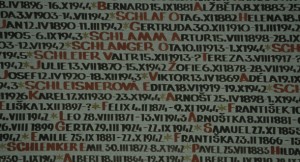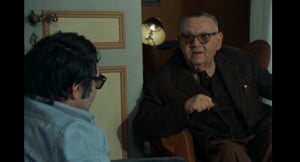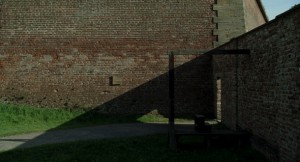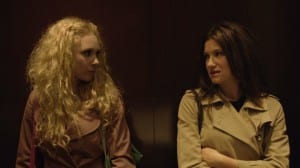Dir: Claude Lanzmann; France, Austria
2013; 218 min Documentary
The title of the film was given, tongue in cheek, by its main protagonist: Rabbi Benjamin Murmelstein (1905-1989), who was the third and only surviving “Jewish Elder” “of the Nazi concentration camp Terezin (Theresienstadt). Nothing can compare with the role of a “Jewish Elder”, a position invented by the Nazis in camps and ghettos to divide the Jews by making the Elders do much of their dirty work.
The Elders were permanently in conflict with the German authority and their own people. They tried to rescue as many as possible but this was only possible if they achieved the quota for the transports to the death camps. For every Jew they could save, at least for the time being, they had to help sending thousands to gas chambers. They were mistrusted by their own and despised by the Germans. And most of them went to the gas chambers themselves.
Lanzmann interviewed Murmelstein (as part of SHOAH) in 1975 in Rome, were he lived – and died in 1989 – in exile. Now age 88, Lanzmann decided, that Murmelstein’s story should be told at length in a separate film, like the uprising in “SOBIBOR 14.10.43” (2001).
Benjamin Murmelstein was born in Lemberg/Poland in 1905. He became Great Rabbiner of Vienna, and, after the ‘Anschluss’ of Austria, he became, as a member of the Jewish Council in Vienna, very familiar with a certain Adolf Eichmann, who was then in charge of Jewish Emigration on behalf of the SS. Murmelstein rejects Hannah Arendt’s thesis, that Eichmann was just a banal administrator – on the contrary, according to Murmelstein, Eichmann was very violent, he often threatened Jews with his revolver, and on “Kristallnacht” 1938 in Vienna he supervised the destruction of the main Synagogue in Vienna. Furthermore, he made a small fortune, selling Exit-Visas to Jews – which turned out to be useless.
Murmelstein was sent to Terezin in 1942, just after the city had been cleared of their Czech inhabitants. Terezin was meant as a Ghetto for the elderly, many German Jews “bought” their places in this “retirement” town from the Nazi authorities, paying with their savings. It turned out to be a death camp like all the others: over 33 000 Jews, mostly elderly, died there, apart from the 88, 000 deported to the Gas chambers.
That nearly 17 000 survived was mainly due to Murmelstein, who became the third “Elder” in 1944. His two predecessors, Edelstein and Eppstein were dead: Edelstein was sent to Auschwitz with his family (after he was put in the most terrible of moral dilemma, when the Germans ordered him to find a hangman in the Ghetto, or be hanged himself), Eppstein was shot because he crossed a forbidden road on a bicycle ‘trying to escape’, whilst following an order by the Germans. When typhus broke out in late 1944, Murmelstein organised a successful action, top stop the epidemic. After the war, Murmelstein was put on trail for collaboration, but found non-guilty. He emigrated to Rome, where he lived for the rest of his life, shunned by his own people and the state of Israel, where his testament in the Eichmann trial was simply ignored.
Lanzmann has not lost any of his vigour, we see him getting up the steep stairs in the surviving buildings in Terezin, which were simply made to exhaust the elderly. And, like in SHOAH, one cannot begin to understand, how this now seemingly peaceful little town was once a slaughterhouse. The footage from the Nazi propaganda film known as “THE FUHRER GIVES A VILLAGE TO THE JEWS” shows Terezin as an idyllic place – and again the Nazis coersed another Jew to participate in this “document” for the Red Cross: Kurt Gerron, director of many films in Babelsberg, shot some of the footage, but he was sent to die in Auschwitz with his family, long before the film was finished. Lanzmann set against these falsifications the drawings of talented prisoner artists of the reality in Terezin, most of them died together with the other prominent musicians and academics from all over Europe.
This is still a necessary reminder of the holocaust, even more when one remembers the fate of Anton Burger, the second commandant of Terezin, who was sentenced to death in absentia and but died of old age in 1991 in Germany, helped by the authorities with a new identity.
Andre Simonoviescz
THE LAST OF THE UNJUST IS ON GENERAL RELEASE COURTESY OF EUREKA ENTERTAINMENT ON 9 JANUARY 2015 TO COINCIDE WITH THE 70TH ANNIVERSARY OF THE LIBERATION OF AUSCHWITZ, AND THE UK BLU-RAY PREMIERE OF SHOAH LATER IN THE MONTH




